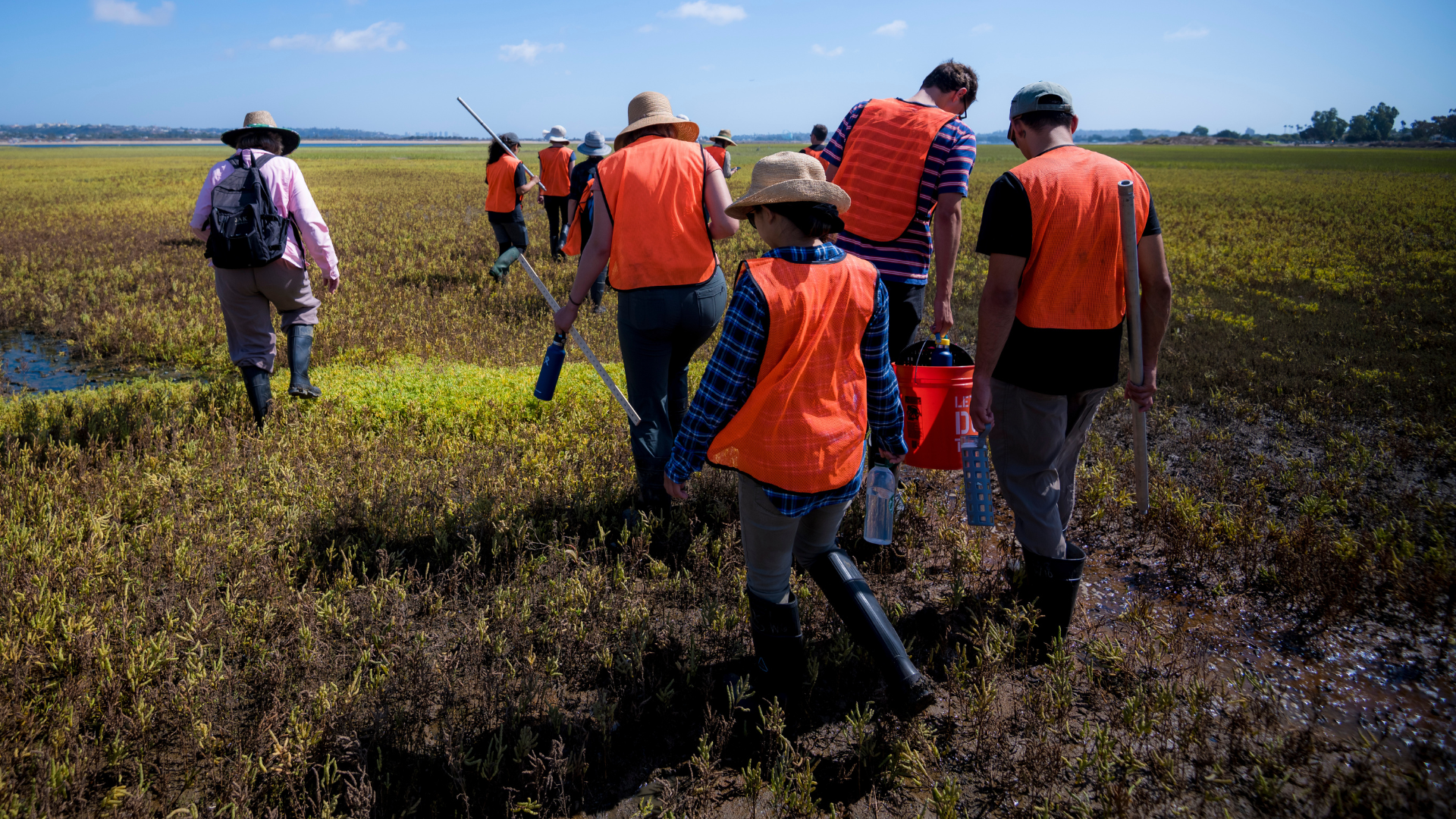
Coastlines and People
The NSF Coastlines and People (CoPe) awards support "multi-institutional coastal research hubs that study the interactions between natural, human-built and social systems in coastal populated environments." CoPe projects focus on research into complex coastal systems and hazards. Projects aim to produce outputs that will help improve coastal resilience to the chosen hazard, and to broaden participation in science along the way.
Read more about NSF's CoPe initiative at the NSF's website here.
Extreme Heat
Our CoPe hub aims to address the hazard of extreme heat in the coastal margin of Southern California. Extreme heat is a growing concern for the region with climate change, and it presents a substantial health hazard to the people living here. In particular, those living in the coastal portions of Southern California are at high risk of health impacts from heat due to lack of acclimatization, and vulnerability is exacerbated further by factors such as the urban heat island effect. Our research aims to better understand the climatic variables underlying this hazard of extreme heat, discern the factors affecting vulnerability using a environmental justice lens, and investigate the vegetation-heat-water relationships that could possibly offer adaptation strategies to extreme heat impacts.
Central to the Hub is the co-production of sustainable intervention strategies that consider climate dynamics, public health, and ecohydrological constraints along with the goals and needs of local communities. Input from a collective of local and regional government agencies, NGOs, and community groups that are already invested and engaged in climate change adaptation will inform the research throughout the life of the hub. In addition to generating science-based, data-driven, and co-produced research and data products that will directly benefit heat adaptation planning efforts in Southern California, and will be transferable to other coastal regions worldwide, the hub is also dedicated to education and outreach efforts aimed to broaden participation in STEM, and will empower students from the communities most hard-hit by climate change and extreme heat to participate in building solutions.
As a focused mini-hub, research will be centered mainly in San Diego, with operations centered at the Scripps Institution of Oceanography (UCSD) and partnerships across the city and county.
Five Research Teams
Experts in five theme areas will work together to form a unified hub addressing interconnected science research questions and developing research products shaped and informed by community and student engagement, with ongoing assessments to ensure successful outcomes. Continue below to learn more about each of the five theme areas.
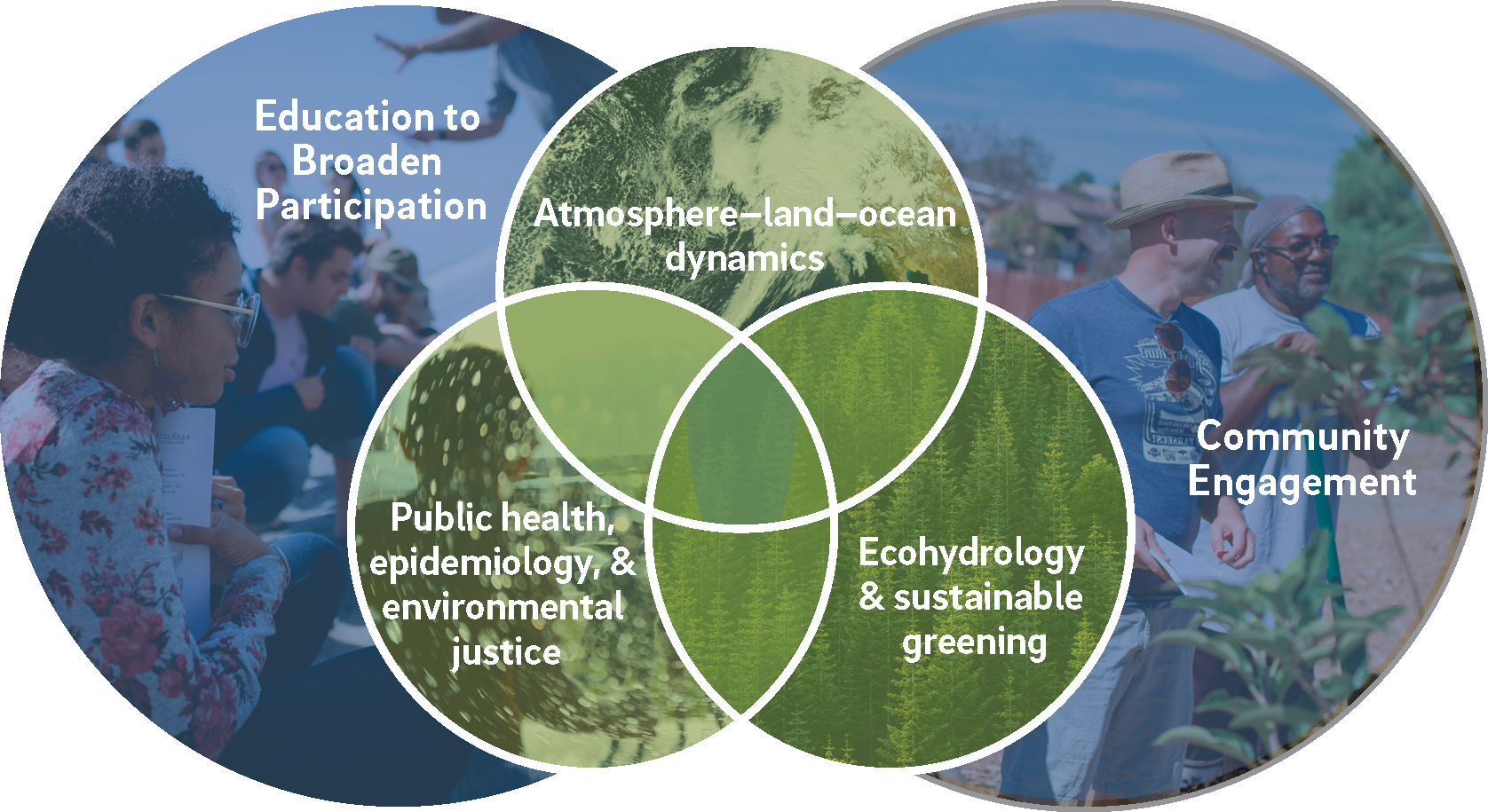
Theme Area 1: Atmosphere–land–ocean dynamics
Research team #1 will tackle questions pertaining to the atmosphere, land, and ocean dynamics that drive and modulate patterns of extreme heat.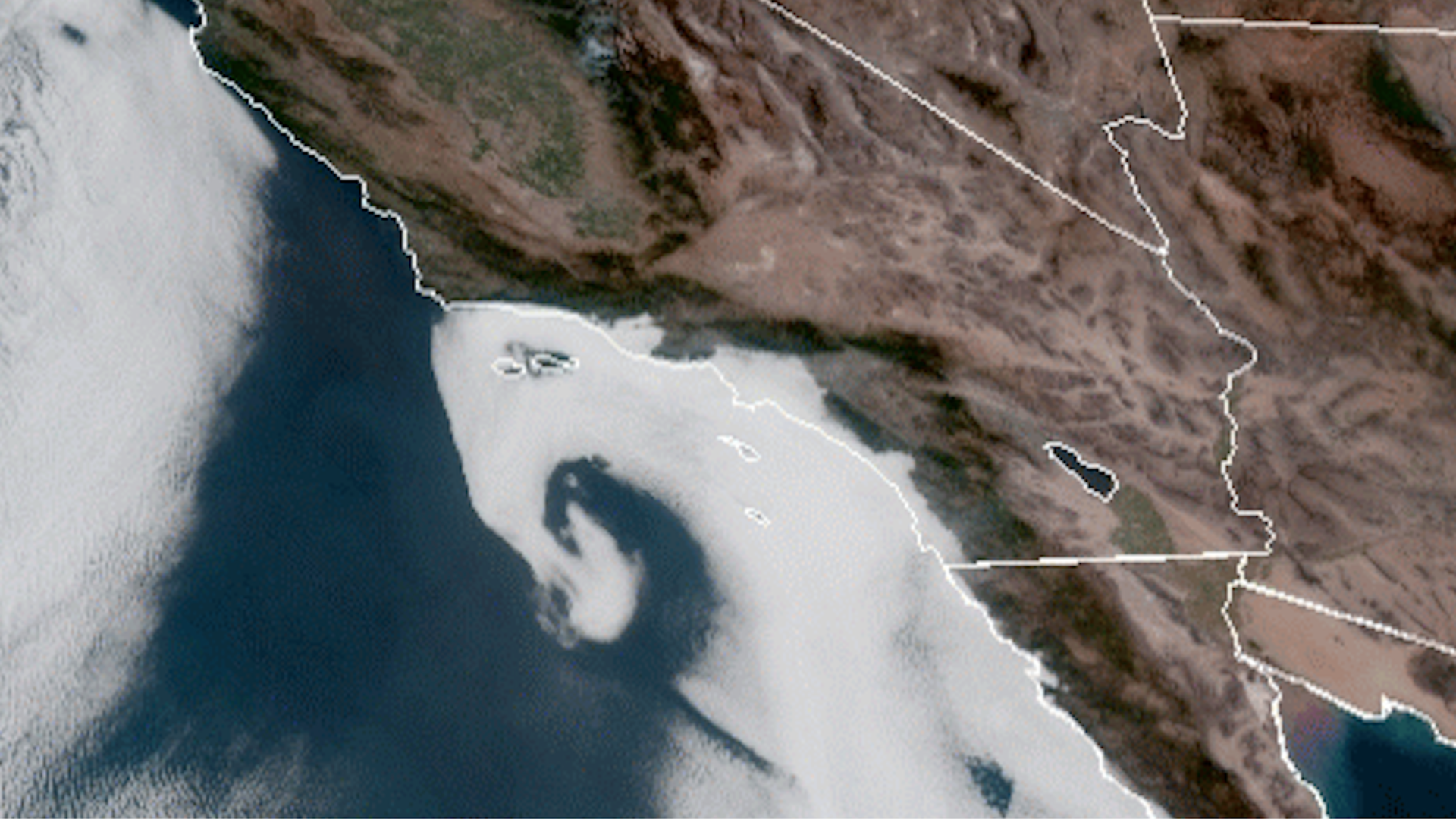
Theme Area 2: Public health, epidemiology, and environmental justice
Researchers in theme area #2 will explore the local health impacts of extreme heat with an emphasis on how the built environment and socioeconomic factors may play a role.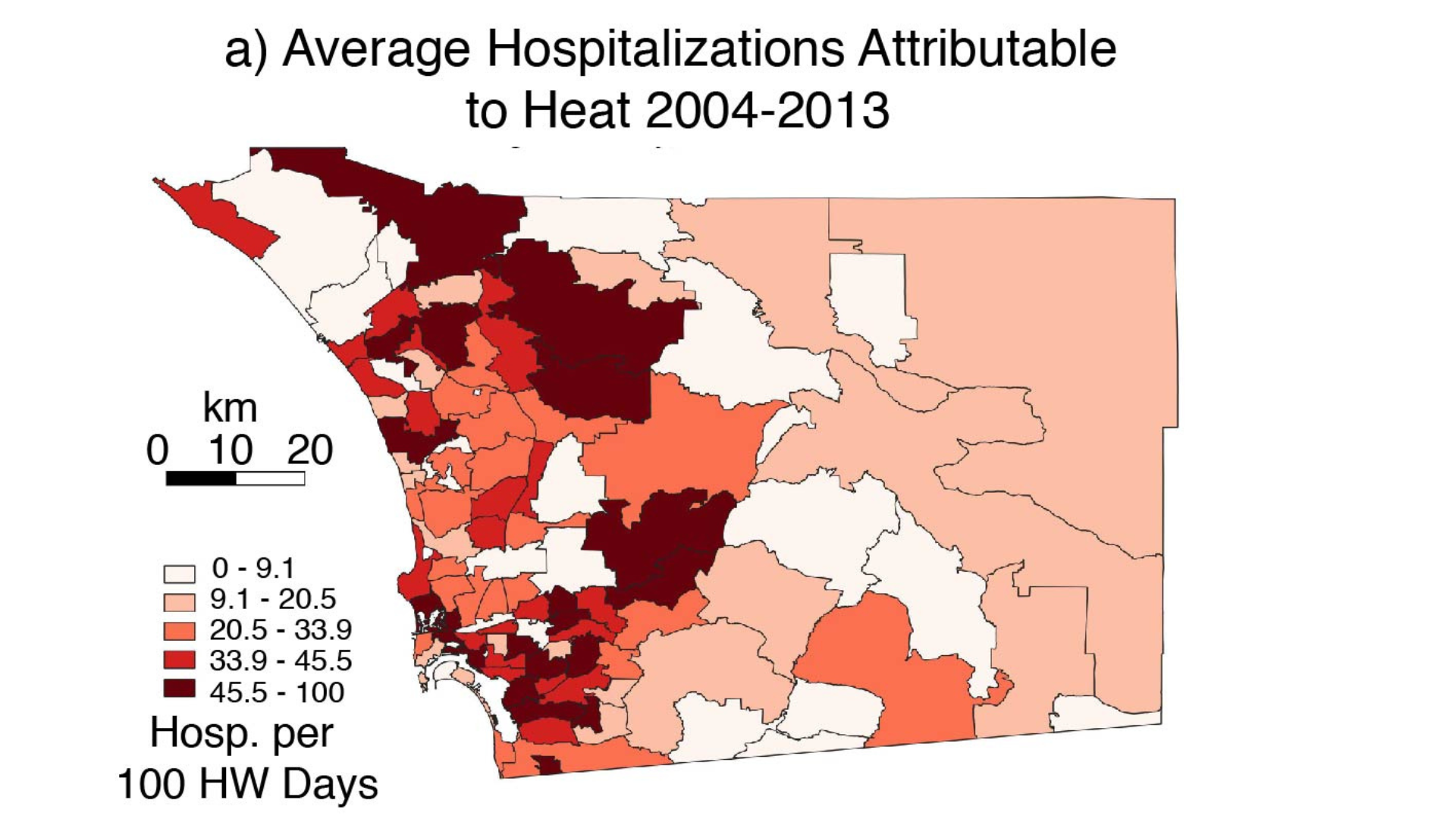
Theme Area 3: Ecohydrology and sustainable greening
Theme area #3 will investigate vegetation-temperature relationships and water sustainability of green adaptation strategies to better inform how we can respond to extreme heat.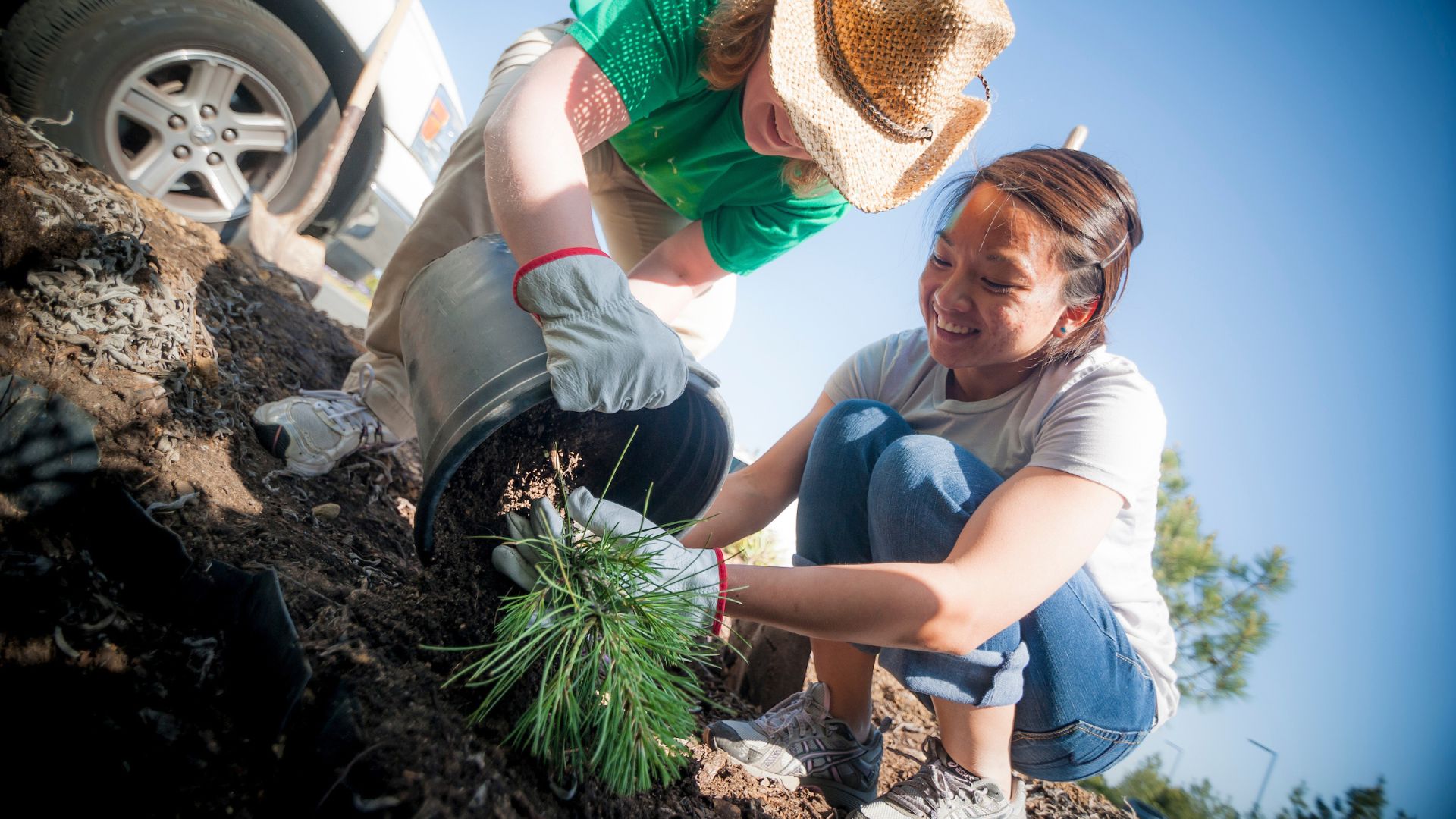
Theme Area 4: Community engagement
Theme area #4 involves our community engagement efforts. Team members will work with the rest of the hub and our community partners toenable long-term, equitable engagement.
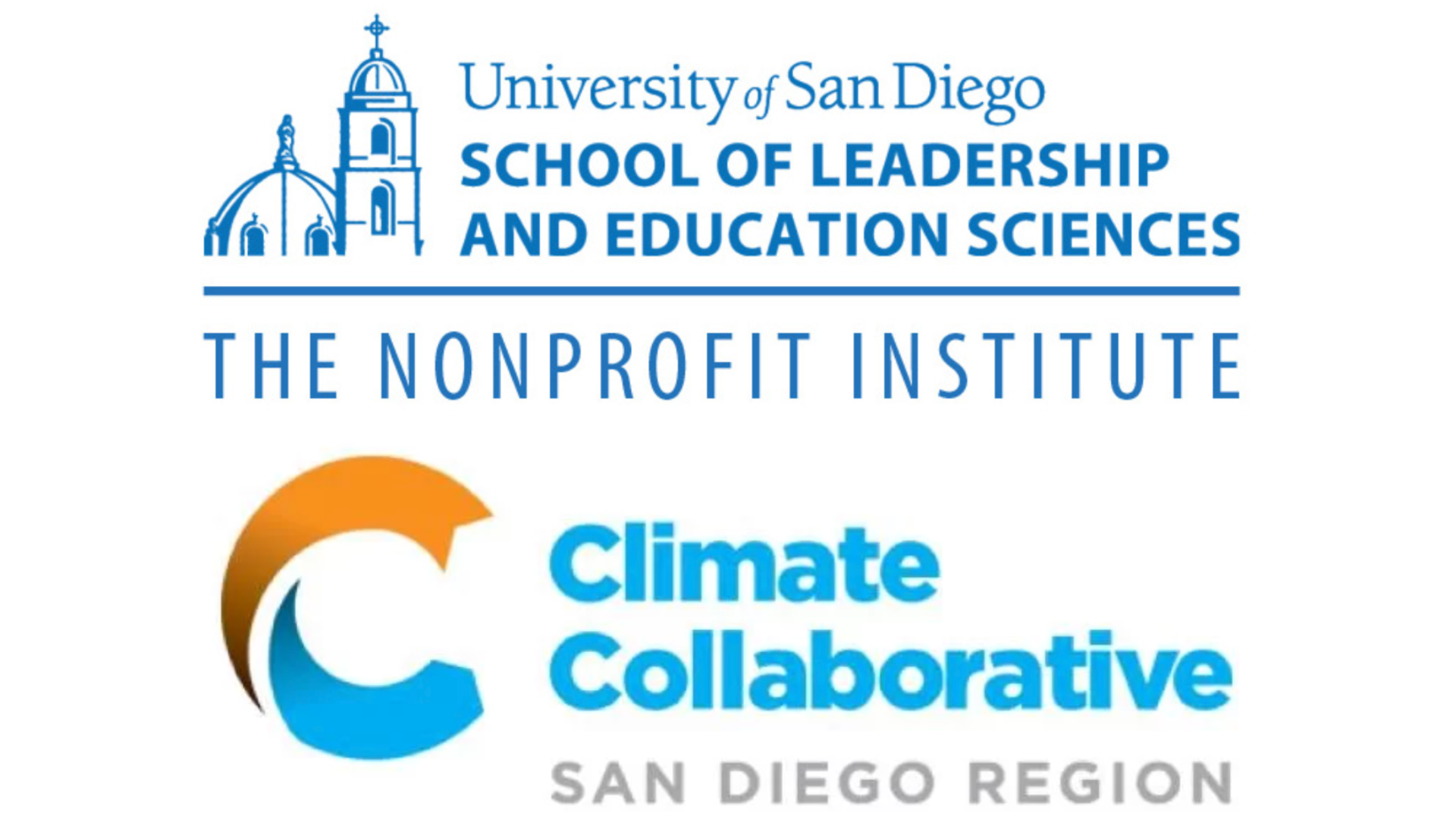
Theme Area 5: Education to broaden participation
Theme area #5 focuses on the educational efforts of the Hub, including at the high school, community college, undergraduate, and graduate levels.